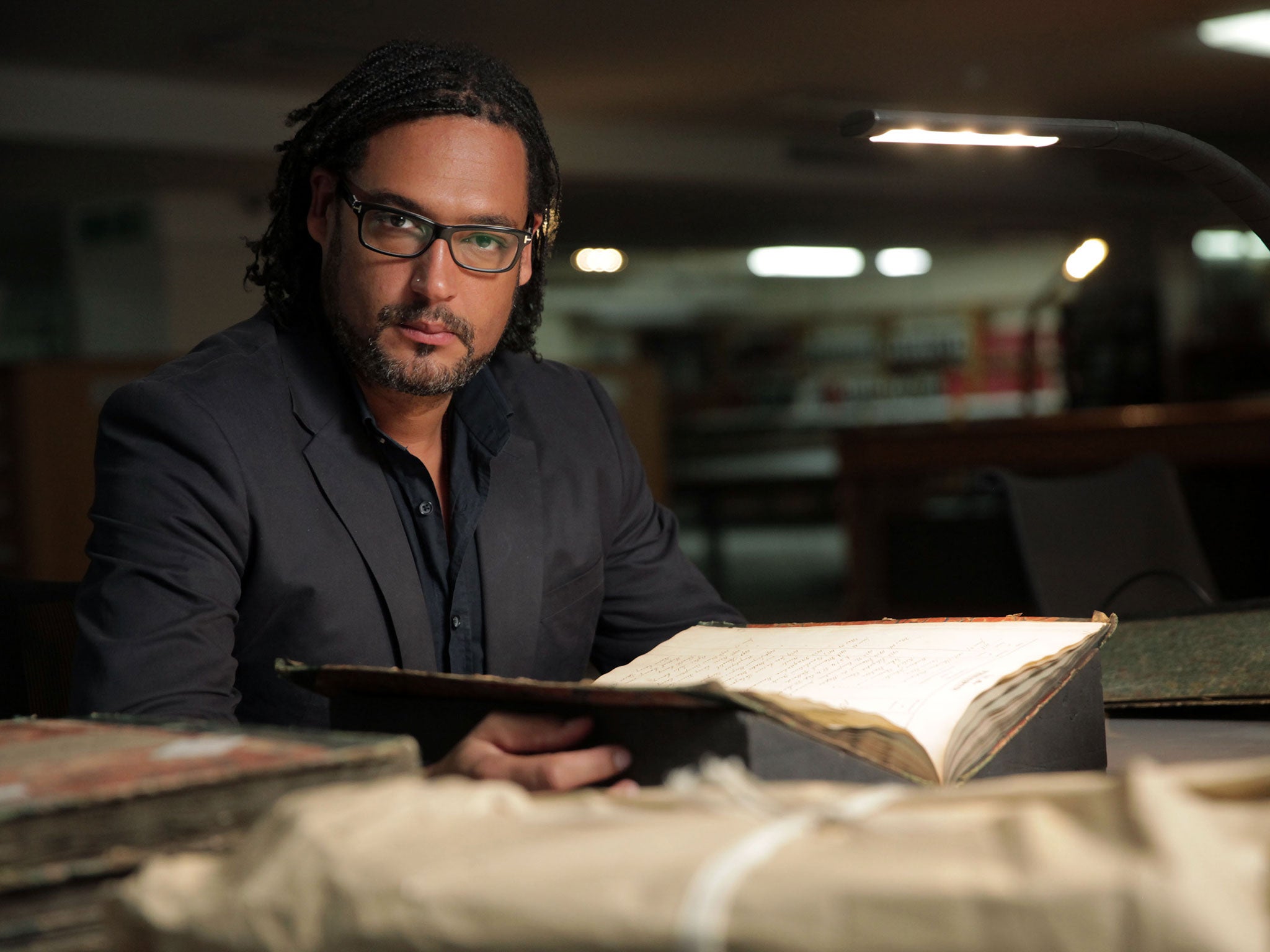Britain's Forgotten Slave Owners, TV review: Who do you think you are but wish you weren't
The BBC2 programme sets the record of the UK's abhorrent 200-year exploitation of other humans straight

Like Ben Affleck, we British would like to edit out slave owning from our history and would definitely prefer it if they weren't part of our families. But while William Wilberforce's reputation and Britain's relatively early abolition of slavery (compared to America, anyway) might have led to habitual back-patting, Britain's Forgotten Slave Owners painfully, and quite rightly, sets the record of this country's abhorrent 200-year exploitation of other humans straight.
David Olusoga skilfully takes us page by page through the ledgers that reveal the scale of British economic reliance on the sale and exploitation of other people. He reveals the whopping £20m (equivalent to £17bn in today's money) that the British government paid out in compensation.
Yes, compensation, but not to the slaves. The cash was awarded to the slave owners to counter their loss of "property" upon the trade's abolition.
Among the 46,000 compensation claimants were the super-rich and power hungry (plenty of MPs as you might expect) but also a staggering proportion of middle class and even lower classes, a surprising 40 per cent of whom were women – probably, Olusoga tells us, as a result of inheritance. He read pleading, pitiable letters from some of these women who requested compensation when their slaves were to be freed, claiming the annuity from their "people" was the only income they had and that without slaves they would be destitute. A bitter and unexpected perspective revealing how far removed from the reality, we assume, such women were from what was taking place in the colonies.
Most poignant was a look at the means that kept a whole race enslaved: the shackles with spikes, the branding irons, the tongue depressor (with a setting small enough for a child) that proved that whatever semblance of sophistication British society pretended to was underpinned by unimaginable barbarity.
British slave owners might not have personally committed the torture that kept generations submissive, but we profited from it and definitely knew what was going on. But what this programme proved is that while you can rewrite history and excise huge chunks of it, somewhere, somehow a ledger charting the extreme cost of previous sins will be waiting to be opened.
Join our commenting forum
Join thought-provoking conversations, follow other Independent readers and see their replies
Comments